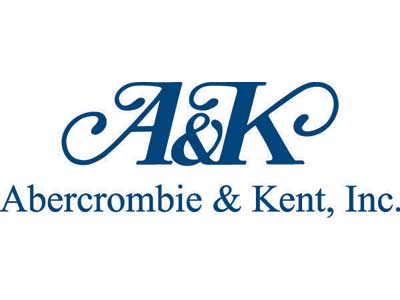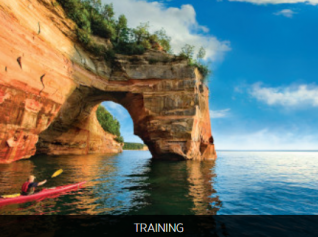Asean tourism campaign "will boost Murdoch empire"
BANGKOK – US aid funds will be spent on a project that claims to be enhancing the region’s competitiveness in tourism, but also appears set to give the meta-search portal Wego.com, financially backed by Rupert Murdoch’s News Corp, clear dominance in the Asean online travel market.
The site http://www.southeastasia.org is being developed as a critical component of the Asean Competitiveness Enhancement Project, under which US$4 million is to be channeled over 2008-2013 through the US Agency for International Development (USAID).
The project is being managed by a US consultancy firm Nathan Associates Inc with RJ Gurley as project director.
According to an announcement at last week’s Asean Tourism Forum, Wego.com has been chosen to provide technological support for the website, the core component of the new tourism campaign designed to attract visitors to the Asean countries. Wego.com will cover half the website development costs.
About US$500,000 will be spent on online marketing to build traffic on the website. That side of the account is being outsourced to Qais, a Singapore web design consultancy company, chaired by Keith Timimi, who states on his website www.qaisconsulting.com that he “was a founding investor in Wego.comâ€.
Wego is linked financially to Australia’s News Digital Media, which is part of News Limited, a division of Rupert Murdoch’s media empire.
In their own words, Wego executives state in recent advertisements seeking software developers: “We’re backed by News Digital Media, which is the Australian online division of Rupert Murdoch’s News Corporation.â€
The campaign built around southeastasia.org is now said to be “supported†rather than “endorsed†by Asean NTOs and the website itself has been described in earlier press releases as “the official website of the Asean Tourism Association†(Aseanta), the private sector grouping.
Major marketing campaigns were announced at the ATF to generate content and attract visitors, travel writers and bloggers to the site, the three most critical prerequisite steps in the path to generating business.
Asean tourism ministries and NTOs will be providing the travel and tourism related content, apparently free of charge, on each of their countries.
Content for the doing-business component will come from the member associations of Aseanta, which will cover all their individual members.
There has been intense debate amongst Asean NTOs as well as Aseanta about the use of the name “Southeast Asia†as against “Asean.â€
But both governments and the private sector appear to have been sold on the big picture benefits – an increased marketing presence that will supposedly bring more tourists to the Asean countries, generate more business for the private sector, and a commensurate income for Aseanta.
But as more information is made available to the public about how the project was packaged and promoted, numerous questions and inconsistencies emerge.
Although claimed to be backed by research, there are strong indications that use of the name SoutheastAsia was decided long before any substantive research was done.
A marketing strategy paper commissioned by the ACE Project claims that “it is time for a change,†but an earlier study requested by the Asean secretariat to assess the impact of Visit Asean campaign clearly says that it was more a question of backing the campaign with adequate resources rather than changing it entirely.
According to the current registration details, the domain name http://www.southeastasia.org was created as far back as May 2001 and last updated 7 December 2009. It has changed hands a number of times since its initial registration.
The current registrant organisation is Nathan Associates Inc. and RJ Gurley is identified as the registrant, administrator and technical contact using the Nathan Associates’ Bangkok office address.
The immediately previous registrant is identified as Mason Florence and the registrant organisation, TMG, also operating out of an address in Bangkok. This record specifies the last update as being in October 2009.
Mr Florence is presently executive director of the Mekong Tourism Coordinating Office, based in Bangkok.
In response to questions, Mr Florence said he bought both domain names, southeastasia.travel and southeastasia.org, for personal business use.
“I was approached by ACE and after listening to what they planned, I agreed to sell southeastasia.org at the price I paid, which was US$550 for the domain name and US$25 for the transfer fee.â€
Mr Florence said it was a personal matter and that he had owned both domain names for some time before discussions had taken place with executives in the ACE project.
“I felt there was more in the southeastasia.travel domain name for me to work with and didn’t feel the same way about southeastasia.org.â€
The entire project is also now being touted as an “initiative†of Aseanta, which is being cited as a “partner†in the venture. However, Aseanta is maintaining a low profile.
At the Asean Tourism Conference in Brunei, many of its senior board members left for the airport to catch flights home even as the project was being unveiled. At a subsequent press conference, not a single Aseanta member was on the panel to take questions.
Officially, the campaign is said to be targeted only at the UK, Australia, India, North America and Hong Kong, but Mr Gurley told an ATF media conference that talks are under way to establish a Chinese-language website. That will expand the base to a far larger audience than just Hong Kong.
Mr Gurley also sought to present the ACE project as a doing-good venture from which the US expects to get nothing in return. That contradicts USAID’s own tagline which says it “provides economic, development and humanitarian assistance around the world in support of the foreign policy goals of the United States”.
Presently, promoting US business and economic interests is a major component of US foreign policy as well.
USAID projects operate under strict supervision, particularly on the matters of bids, budget spending and good governance, which includes transparency and accountability. So far, however, USAID has declined to comment on questions filed with the agency.
Mr Gurley made a strong case for the ACE initiative by claiming it would help Asean’s tourism SMEs to improve their competitiveness, but the facts indicate that bringing in more SMEs will also help wego.com, an already cash-rich meta-search engine.
It stands to gain a substantial increase in search traffic by having a content-wealthy website bolted to its portal.
To ensure Asean’s SME community is well represented on the search engine, Aseanta will have to add partners from the region, particularly Myanmar, Laos, Cambodia and Vietnam.
Content will also come from the membership lists of the Aseanta member associations.
Wego has promised to share referral revenue generated from the website 50-50 with Aseanta, but this is no more than it offers any of its affiliates.
The split on referral revenue is presented on the Wego website (Wego Affiliated Distribution Agreement Item 4) and can be taken advantage of by anyone who runs a website. They simply sign up and download the collateral and links at no cost.
Wego’s revenue is derived from (pay per click) advertising and an override commission paid by it commercial partners (airlines, hotels, car rental and tour operators) on completion of a successful referral. Search criteria is weighted in favour of partners.
Wego’s Affiliate Agreement, a downloadable PDF document, explains the revenue mechanism for websites affiliated with its search engine. It states that Wego pays 50% of net search revenue generated through an affiliate site.
This is how it works. A traveller, visiting an affiliate website, uses the Wego search engine panel to do a little comparison shopping.
If he clicks through to one of Wego’s commercial partners, displayed in the search listing, it earns exit click revenue for Wego. Wego splits the revenue equally with the affiliate site, after deducting any fees, commission, or revenue shares, due to third parties.
Wego earns from its commercial partners gross search revenue based on exit clicks that are registered when a shopper views a Wego search listing and clicks through to one of partners displayed.
This exit click revenue depends on the individual commercial agreements Wego has secured with partners, so the rate may differ and in some cases the exit click may not carry any revenue earning at all.
However, other competitive systems are available in the region such as HotelsCombined.Com that pays 75% of all revenue generated by visitors from its affiliate websites.
Based out of an office Boat Quay, Singapore, wego.com was launched 8 August 2008 to replace Bezurk, a B2B comparison shopping site established in 2005, according to the Wego website.
Martin Symes, who joined Bezurk as CEO in March 2006 from ZUJI, where he was executive director commercial, stayed on to manage the new Wego brand and its expansion into a leading search engine for the Asia Pacific region.
A financial restructuring, concluded 15 January 2008, saw Australia’s News Digital Media become an investor, with NDM corporate development director, Sue Klose, taking a seat on the board, according to press releases issued by Wego and the Australian media company.
It was viewed as a pivotal factor driving the brand remake and the decision to go B2C. It was also NDM’s first international investment.
NDM in turn is a division of News Limited Australia which is part of Rupert Murdoch’s News Corporation, trading on US stock markets.
Financially, Wego is a one of the fat cats in the region’s online travel business, according to an independent financial analysis by OWW Capital Partners Pte Ltd (www.oww.com.sg).
The analysis suggested that Wego was on par with other online travel industry players such as Wotif and Asiatravel.com that “saw a 40% and 22% increase in revenues respectively in 2008â€.
Hence, the ACE project, funded by US taxpayers, has opened the way for a business unit of a global corporation that declared a cash balance of US$6.5 billion in 2009 and assets exceeding US$53 billion to expand its empire in the Asean countries.
Some Aseanta board members as well as Asean NTO officials claim not to have been aware about the deeper ownership and financial connections of wego.com.
Others who knew about it paid scant attention to the broader implications, but preferred to see only that they would get a free website to help them generate business, visitor arrivals and cash flow.
However, Asean tourism industry private sector executives now are seeking more transparency about the entire process, including terms and conditions, payments, liability issues, etc.
There are also other procedural concerns about which USAID has so far declined any comment. Reliable sources have confirmed that Wego was already identified as the preferred technology partner and host of the proposed website in a Terms of Reference sent out to a few companies in early 2009.
Wego cropped up in initial discussions in 2008 as the preferred partner and was also linked to a similar project under consideration by the Mekong Tourism Coordinating Office, whose website also clearly says that it is “supported by†USAID and the ACE project.
This was confirmed by its executive director, Mason Florence, shortly after he took over from former consultant and advisor to the MTO, Peter Semone.
As the financially-strapped Asean NTOs have also seen fit to get the ACE Project consultants involved in preparing the Asean Tourism Strategic Plan for 2011-15, just about the entire future of Asean and Mekong tourism development and marketing plans is now in the hands of the US government and its consultants.
Questions are now clearly arising about whether the ultimate beneficiary will be the foreign policy goals of the US, the Rupert Murdoch online media empire or the Asean tourism industry.
Authors: Imtiaz Muqbil and Don Ross.
 United Kingdom
United Kingdom United States
United States Asia Pacific
Asia Pacific












































EU airports bring back 100ml liquid rule
CLIA: Anti-cruise demos could cause itinerary changes in Europe
Co-pilot faints, easyJet flight issues ‘red alert’
Dozens fall ill in P&O Cruises ship outbreak
Woman dies after getting ‘entangled’ in baggage carousel